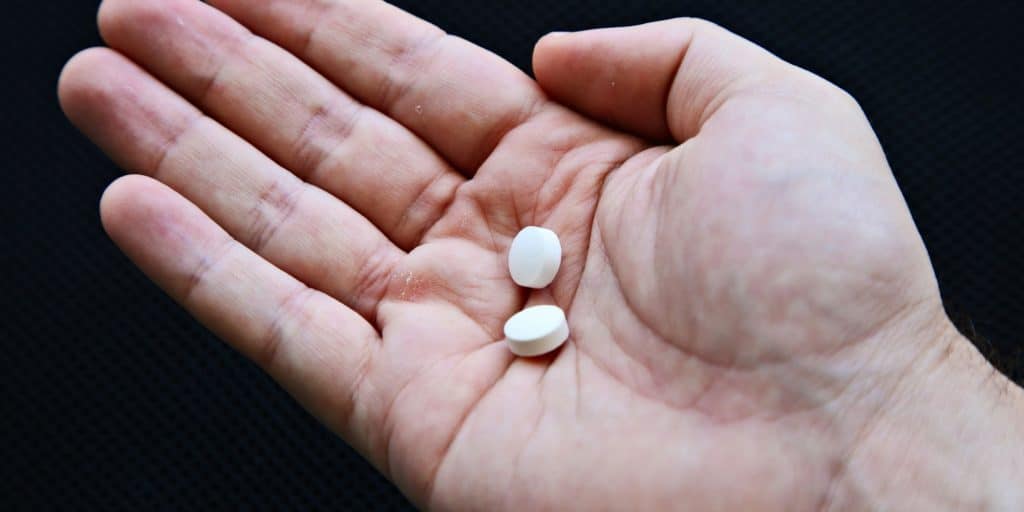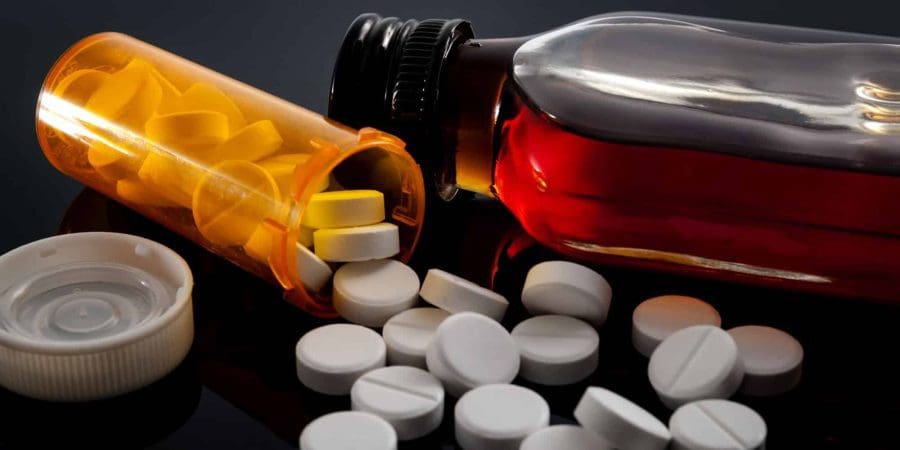Millions of people throughout the country take prescription opioids for pain relief every day. However, some people may look for ways to magnify the effects of their medication, such as by taking oxycodone and alcohol together. Unfortunately, combining substances does not create a better experience. Instead, it can be incredibly dangerous and increase the risk of life-threatening side effects.
Used separately and in moderation, oxycodone and alcohol are far less likely to have fatal effects. If you already have an oxycodone prescription and you’re trying to determine if you can drink alcohol while on it, the answer is likely no. Below, we will discuss how and why the way these two substances interact is so dangerous.
Using Oxycodone Safely

Both oxycodone and alcohol can be used in safe amounts, but it is best for them to remain independent of one another. As a prescription opioid, oxycodone is already highly addictive by itself. In fact, over 10 million people misuse prescription opioids every year.
Someone can misuse oxycodone in a few different ways. For example, they may take a higher dose than they are supposed to or take their prescribed dose too frequently. If they have access to enough oxycodone, they could also continue taking it for longer than prescribed.
Similarly, consuming oxycodone and alcohol together is another way of misusing prescription opioids. Even if someone takes the correct dose, any amount of alcohol taken with it increases the risk of severely impaired judgment and other dangerous effects.
Chronic oxycodone misuse can evolve into opioid addiction if left unaddressed. In turn, prescription drug addictions can cause every facet of someone’s life to deteriorate, including their physical, mental, and social well-being. For this reason, individuals who take prescription opioids should only do so exactly as instructed by medical professionals.
Drinking Alcohol Safely
Take your first step towards recovery.
Oxycodone and alcohol are both addictive substances. While plenty of people can consume alcohol in moderation without long-term ramifications, it is also easier than you may expect to partake in excessive drinking. For instance, binge drinking is defined as having more than four or five drinks in one sitting.
If someone develops a pattern of heavy drinking that they cannot break, their alcohol use may have turned into alcohol addiction. At that point, they will likely need to seek professional addiction treatment to prevent their condition from worsening further.
As a central nervous system depressant, alcohol tends to impair judgment and overall cognitive ability. Once someone takes it a step further by combining oxycodone and alcohol, however, the effects of both substances can result in even more extreme effects.
Harmful alcohol use results in over three million deaths every year. Combining oxycodone and alcohol only contributes more to the risk of alcohol-related deaths due to how intoxicated it can make people. For the safety of yourself as well as the people around you, keep alcohol and drugs separate.
Can You Mix Oxycodone and Alcohol?
Even though oxycodone and alcohol can be consumed in safe amounts, they should not be mixed together. One study found that roughly a fourth of opioid overdose deaths involve alcohol as well. Similarly, opioid-related emergency room visits are more likely to end in fatal outcomes when alcohol is involved.
Combine that with the National Institute on Drug Abuse’s reports of increasing opioid overdose deaths, a pattern which has remained steady for the last several years. It paints a picture that clearly shows the risks of mixing oxycodone and alcohol.
How Oxycodone and Alcohol Interact
One of the reasons combining oxycodone and alcohol is so dangerous involves the fact that both substances work in different ways. Oxycodone binds to opioid receptors in the brain, whereas alcohol inhibits communication between certain neurotransmitters.
Since they target different parts of the brain, they can both work at once. In other words, their effects can stack. Someone who combines oxycodone and alcohol may think they want this to happen because they want to feel doubly relaxed, but the reality looks less pleasant.
Instead, combining alcohol with oxycodone tends to emphasize the negative side effects far more. For example, people who mix alcohol and drugs, especially prescription opioids, may experience side effects like:
- Respiratory depression (slow or no breathing)
- Extreme blood pressure changes
- Irregular heart rate
- Dehydration
- Unconsciousness
- Heart attack
- Coma
Furthermore, keep in mind that someone does not need to misuse oxycodone and alcohol for combining them to be dangerous. For example, someone could take oxycodone exactly as prescribed, drink a few glasses of wine at dinner, and then enter a state of dangerous respiratory depression.
Oxycodone and Alcohol Addiction Treatment

Due to factors like lowered inhibition, combining oxycodone and alcohol increases the risk of substance abuse. In turn, patterns of substance abuse can easily become full-fledged addiction if left untreated.
Thankfully, individuals who fight oxycodone and alcohol addictions can get help through any of several possible addiction treatment programs. Numerous potential avenues to recovery exist, and with time and patience, someone can discover which works best for their situation.
Detox from Oxycodone and Alcohol
Addiction often stems from a physical dependence on a substance, meaning that when someone attempts to stop using it, they experience unpleasant withdrawal symptoms. Without the proper precautions in place, some of these symptoms can evolve into dangerous complications.
Therefore, for many individuals, the first step of addiction recovery involves a medical detox. Detoxing allows someone’s body to physically recover from using substances like oxycodone and alcohol. Doing so in a professional, medical setting keeps patients safe and comfortable.
A medical detox program eliminates many of the risks associated with detox by pairing patients with a team of licensed doctors and addiction experts. This team monitors their status throughout the detox process. If a patient shows signs of a dangerous withdrawal symptom, the team leaps into immediate action to mitigate any potential harm.
With the support of medical professionals, detoxing from oxycodone and alcohol becomes a safe process. Some of the discomforts of detox persist even in a medical program, but they appear in much less severe forms.
Addiction Treatment Options
Recovery may not end immediately after detoxing from oxycodone and alcohol. Some individuals benefit from receiving additional care. To that end, The Blackberry Center offers numerous addiction treatment therapies that suit a wide range of needs.
Each of these therapies comes as part of The Blackberry Center’s dual diagnosis program. Patients who opt for dual diagnosis treatment participate in many of the same therapeutic activities mentioned above, but with a special emphasis on their co-occurring disorder to better shape their treatment plan.
With each of these therapeutic techniques, we use an assortment of treatment modalities to help individuals with oxycodone and alcohol addictions, including:
- Individual therapy
- Group therapy
- Medication management
- Recreational therapy
- 12-step programming
- Nutrition education
- Discharge planning
- Relapse prevention
- Referrals to community support groups
Some individuals may also develop a mental illness prior to or following addiction. Known as co-occurring disorders, these types of simultaneous conditions may require specialized treatment.
Ultimately, if you battle addiction to oxycodone and alcohol, The Blackberry Center can help. Our trained staff of licensed physicians and addictions specialists work with every patient to design an individualized treatment plan to address each of their needs.
Get Addiction Help in Florida Today
Addiction does not have to last forever. If you need help with oxycodone and alcohol misuse, consider The Blackberry Center. We are a mental health and addiction treatment center just outside of Orlando, Florida.
Our tranquil, retreat-like addiction treatment center allows patients to feel comfortable throughout treatment and focus solely on recovery. We promote important life skills and provide our patients with the knowledge they need to achieve long-term sobriety.
If you have any additional questions about how we help individuals battling oxycodone and alcohol abuse, please reach out today. You can contact our admissions experts by calling (813) 908-4199 or submitting a confidential contact form online. They will gladly answer your questions and connect you with the resources you need for your next steps.

